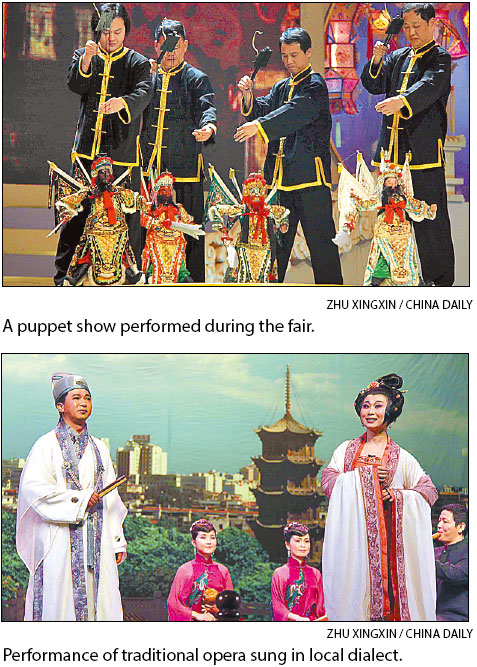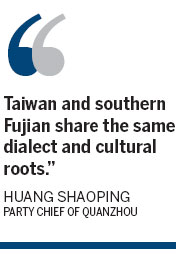
The Southern Fujian Cultural Festival, the annual celebration and showcase of local culture held in the province's Quanzhou city, will be incorporated into the ongoing Straits Forum for the first time.
The festival's incorporation into the forum - held in the provience's Xiamen city - highlights cultural ties between the Chinese mainland and Taiwan, according to organizers. The forum opened on June 15 and will last through Friday.
"Taiwan and southern Fujian share the same dialect and cultural roots," said Huang Shaoping, Party chief of Quanzhou.
Huang said despite the increase in cultural exchange between the two sides, there is room for greater collaboration.

The festival began on June 16 and will last three days. It features a symposium on southern Fujian culture, martial art stunts performed by monks from Southern Shaolin Temple, and an exhibition of relic porcelain pieces from the city's Dehua county, which is known as one of the "three porcelain capitals of China."
Highlights of the festival also include performances by the Jinjiang glove puppetry, which started in the Jin Dynasty (1115-1234), as well as a chorus of Nanyin music, a traditional opera sung in the southern Fujian dialect that has existed for more than 1,000 years by more than 100 artists from ensembles of across the world.
Another high-profile cultural-themed event during the forum is the Mazu pilgrimage ceremony on Meizhou Island in Putian.
The ceremony attracted roughly 1,000 residents from Taiwan and more than 2,000 mainland people on June 13, marking the start of a Mazu-themed cultural week.
Mazu is the Chinese goddess of the sea born on Meizhou Island, according to the legend. The respect for her has turned into a widespread belief among the people in China's southern coastal regions.
According to statistics, roughly two-thirds of Taiwan people believe in Mazu, and more than 800 Mazu temples are scattered across the island.
At the ceremony Mazu devotees dress in traditional costumes as they worshipped the goddess and sing carols.
Lin Guoliang, a Putian city government official, said such cultural events have boomed over the years and further strengthened cross-Straits exchanges.
We recommend:
